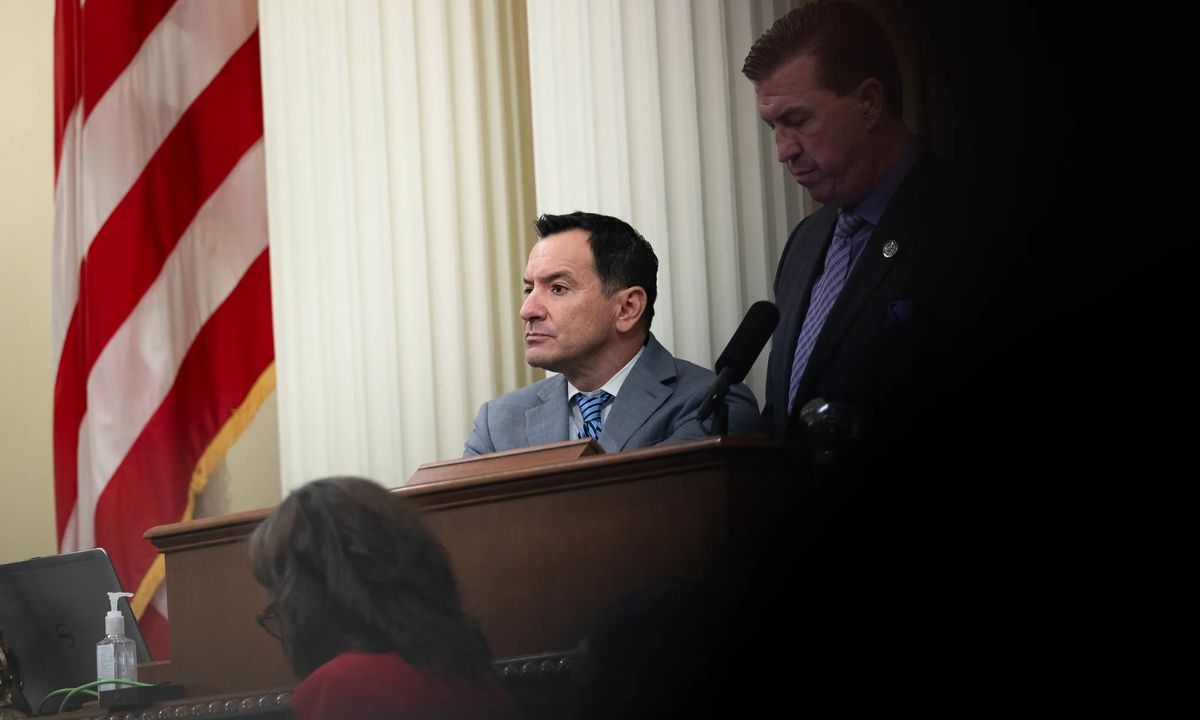Education Secretary Linda McMahon stated Thursday that Penny Schwinn, who was slated to be the second in command of the U.S. Department of Education, has withdrawn from consideration for the position.
Rather, the former education commissioner from Tennessee will serve as a paid consultant for the department.
In a statement, McMahon expressed her gratitude to Dr. Schwinn for her dedication to helping educators, families, and students nationwide. Penny has a sharp mind for education, and I’m excited to keep collaborating with her as my main tactician to restore excellence in education.
In a statement, Schwinn said she carefully considered the choice and that she will continue to be dedicated to her life’s work and North Star, which is to protect children, increase success, and extend opportunities.
Schwinn was one of President Donald Trump’s first choice for department positions and is regarded as a crusader for enhancing reading outcomes and high-dosage coaching. Although she was viewed by many as a more bipartisan choice than other candidates joining the administration, her nomination was strongly opposed by conservatives in Tennessee who thought she was too liberal.
Some conservatives believe that Schwinn’s withdrawal couldn’t have come at a worse time.
Jim Blew, a co-founder of the think tank Defense of Freedom Institute, said that her decision to withdraw from consideration for the position of deputy secretary is detrimental to the Trump administration, educators, and children. Under the One Big Beautiful Bill and a number of urgent executive directives, the president and Congress have given Secretary McMahon enormous responsibilities.
McMahon, the chairman of the Education Department, is working to give the states more control over education. Who will assume the deputy role and lead the state’s requests for greater budgetary flexibility for education is currently unknown. At least two states—Oklahoma and Iowa—have already applied for block funds, and Indiana is already soliciting public input in anticipation of a similar proposal. Longtime education chief Kirsten Baesler of North Dakota is presently awaiting approval to join the department as assistant secretary for elementary and secondary education. Along with eleven other Republican leaders, she petitioned McMahon in February for more authority to allocate education funding to state-level needs.
For years, Schwinn has been the subject of debates and inquiries regarding her conservative credentials. Her prior support for diversity efforts, including as hiring more teachers of color, was cited by far-right organizations like Moms for Liberty as proof that she was not a good fit for an administration that was committed to ending such programs. Others were still upset about Schwinn’s proposal to perform home visits for well-being during the pandemic. Parents and lawmakers viewed the plan as an example of government overreach, even though she abandoned it.
More recently, conservative Tennessee commentator Steve Gill revealed that Schwinn suggested those who support comprehensive sex education, including abortion rights, to counsel the state on health curriculum while she was the deputy superintendent of the Texas Education Agency.
Gill told The 74 that he shared his TriStar Daily piece about her position on these topics with the state’s congressional delegation and Tennessee senators Marsha Blackburn and Bill Hagerty. Blackburn was viewed as a potential no vote for Schwinn, and he is anticipated to seek for governor next year.
On background, Blackburn’s staff confirmed that the senator has been putting in a lot of effort behind the scenes to prevent the confirmation by working with the White House, Secretary Linda McMahon, and Majority Leader Thune.
Blew expressed regret that politics interfered, pointing out that Schwinn’s background in both blue and red states would have contributed significant knowledge to the Ed Department position. Schwinn worked for the Delaware Department of Education, established a charter school in Sacramento, and held positions in Tennessee and Texas.
He said it’s unfortunate that a few demagogues are preventing Secretary McMahon from having the team she needs to be successful.
Others commended Schwinn’s track record of allocating COVID relief funding for tutoring and emphasizing the science of reading in Tennessee schools.
Rick Hess, director of education policy studies at the conservative American Enterprise Institute, said that this is a setback for everyone who wants to see Washington cutting red tape, promoting literacy, and standing up for common sense principles.
As Schwinn awaited her Senate education committee appearance, several detractors questioned her business endeavors since she resigned from her position as Tennessee’s top official two years ago.
The 74 reported in June, one day before her joint hearing with three other nominees, that she and a longtime colleague filed a new education consulting firm in Florida, called New Horizon BluePrint Group, shortly after Trump nominated her for the position. Schwinn’s sister took over as manager of the company before she completed ethics paperwork with the federal government.
Her colleague, former Palm Beach County School District superintendent Donald Fennoy, disbanded the company when a reporter from The 74 inquired about the new endeavor.
Ethics experts argue that in order to prevent the appearance of a conflict, candidates for administration positions tend to avoid new commercial relationships, but Schwinn has already been accused of making poor decisions.
According to a state audit, in 2017, while she was in Texas, the state agency entered into a no-bid contract worth $4.4 million with a software company with whom she had a business relationship as a subcontractor. Additionally, in 2021, the education agency in Tennessee struck an agreement worth $8 million with TNTP, a teacher training business where her husband, Paul Schwinn, was working at the time. The deal was viewed by lawmakers as a major conflict.
According to J.C. Bowman, executive director and CEO of Professional Educators of Tennessee, a non-union group, ethics was a top priority. He was one of the people who wrote to the Senate requesting that they take her off of the ballot. Many found it difficult to ignore the potential influence of her personal economic interests and potential conflicts on educational decisions.









